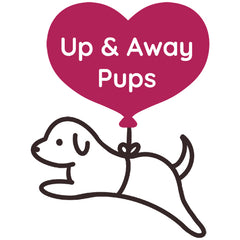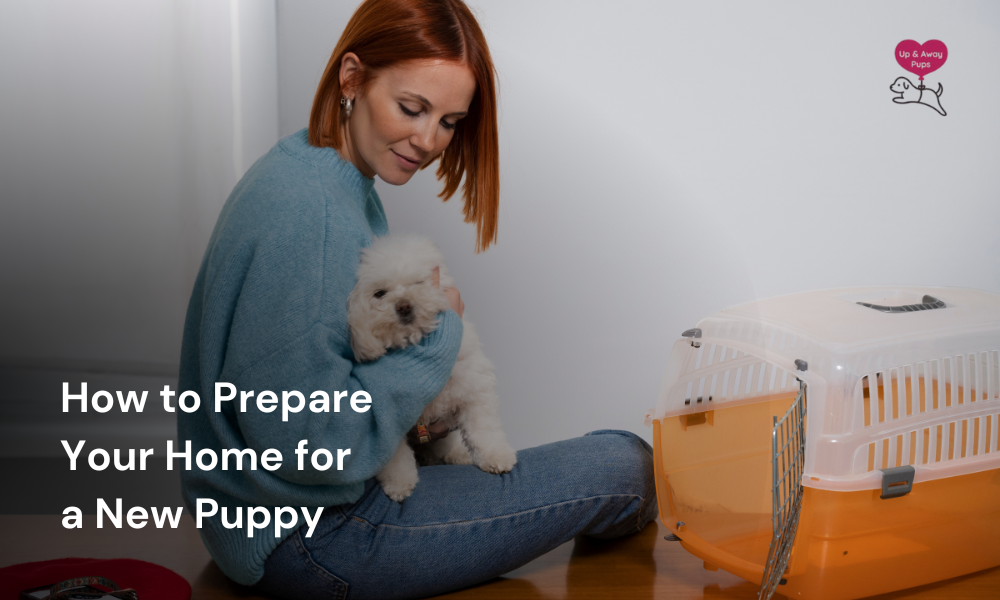How to Prepare Your Home for a New Puppy
It is arguably one of the most memorable days of one’s life when they first get a puppy. The intensity behind the title “pet parent” really sinks in once you hold this tiny little thing in your arms, knowing it depends on you, for practically its entire life, for everything from food to shelter. It is overwhelming, but in a positive sort of way. You become a new person. A part of you that you might not even have been aware of awakens.
Now, while going in blind does, in hindsight, result in some great memories, it can be rather difficult to manage in the moment. So, in this blog, we will talk about how you can prepare for your pup’s homecoming.
Preparing for the Arrival
Day one is super important. If possible, and we recommend you make it possible, cancel all your plans and spend this time with your furry baby. This is essential to create a bond and help the pup feel safe around you.
As much as we would enjoy just a day of cuddles, the first day involves more activities than simply relaxing with your new best friend. Here is what you will need to do (some of these, in fact, should ideally be done a day before).

🐶 Ready to Find Your Perfect Puppy?
Browse our adorable puppies and start your journey today!
Browse Yorkie PuppiesPuppy Proofing the House
Kids are kids, no matter the species. And kids, as they tend to do, find themselves in all sorts of trouble. Puppies are cute, but they are bundles of chaos at the same time. You need to puppy-proof the house. Here are some things to keep in mind:
• If it is on the floor or within their reach, they will chew it. So relocate all such items out of reach unless you want them shredded
• It is not just things they can fit in their mouth—they will chew tables, chairs, anything. What you cannot move but must protect, tape it up
• Remember, if the puppy is out of your sight and being extra quiet, they are either sleeping or up to something
Get the Essentials
You are going to need to get a number of things, ranging from entertainment to basic survival. Here is an assorted list:
• Bedding, blankets and insurance.
• Toys, including chew toys and ones meant for mental stimulation (dogs, especially intelligent breeds like Poodles, need their daily dose of mental challenges)
• Bowls for food and water, along with a potty training kit
• Grooming kit, including combs, shampoo, a muzzle (though if you introduce them to bathing and grooming early, you might not need it), a toothbrush (yes, you need to brush their teeth), and nail clippers (unless your lifestyle naturally wears their nails down)
• Leash, collar, harness, and ID (for when the dog-police shows up)
• Playpen, crate, dog or baby gate, and a first aid kit for emergencies
Establish Clear Rules
Puppies thrive on routines and a clear set of rules. No sitting on the bed? Establish that from day one and stick to it. If you keep changing the rules or give in to their puppy-dog eyes, those rules will not be respected.

It is best to sit down with the entire family and agree on the rules of conduct. No nibbling means no nibbling, ever.
Is Training Unethical?
Some people are under the impression that imposing rules—or training in general—is not right. For many dog owners, it can feel like a moral dilemma to decide whether to train their dogs or not.
The truth is, training your dog is one of your responsibilities as a pet owner. It is in the best interest of the puppy, you, and everyone else. It keeps the puppy safe, builds trust and communication, makes it easier to coexist, and improves the overall quality of life.
The sentiment behind avoiding training may come from a place of compassion, but training itself is not unethical. What matters is how you train and establish rules. Here are a few practices to avoid:
• Harsh punishment, fear, or force: Yelling, leash jerks, shock collars, or anything that causes pain or fear is not just outdated. It can be traumatic and damage your relationship with your dog.
• Ignoring your dog’s needs: Forcing a dog into long training sessions when they are tired, scared, or overstimulated is unfair. Training should respect their emotional and physical state.
• Using dominance-based methods: Modern research shows dogs do not need to be shown "who's boss." The old-school alpha or dominance approach has been debunked and is often harmful.
Understanding Canine Mental Health is your responsbility as a pet owner now.
What’s Ethical?
• Clear, consistent cues: Dogs love structure and clarity. It provides security, not control.
• Being patient and empathetic: You are not just training a dog. You are raising a sentient being who wants to please you but does not yet know how.
• Positive reinforcement: Rewarding good behavior with treats, praise, or play works better and feels better for everyone involved.
Conclusion
Bringing a puppy home is a life-shifting moment. The joy, the chaos, the bonding—it’s all part of the experience. But while love comes naturally, preparation takes a little planning. Taking time to puppy-proof your space, stocking up on the essentials, and agreeing on household rules will go a long way in making those first few weeks smoother for everyone.
Training, too, isn’t about control or obedience for obedience’s sake. It’s about communication, safety, and setting your puppy up to thrive in your home and the world around it. It’s okay to feel unsure at times. What matters most is that you lead with kindness, patience, and consistency.
You don’t need to be perfect. You just need to show up every day with intention, curiosity, and love. Your puppy will do the same.
Frequently Asked Questions
Should I Introduce My Puppy to Other Pets Right Away?
Not immediately. Give your puppy a day or two to settle in. Introductions should be calm, short, and closely supervised. Let both animals adjust at their own pace.
Can I Leave My Puppy Alone in the First Week?
Ideally, no. The first few days are crucial for bonding and building trust. If you absolutely must step out, keep absences short and create a safe, secure space for them.
What Temperature Should the Puppy’s Bedding Be Kept At?
Puppies struggle to regulate body temperature. Their space should feel comfortably warm—neither hot nor draughty. A soft blanket or a safe heating pad (specifically made for pets) can help.
🐶 Thinking of bringing home a puppy?
Explore our available puppies or talk to a trusted vet to make sure you're fully prepared to give your new friend a healthy start.
View Puppies

